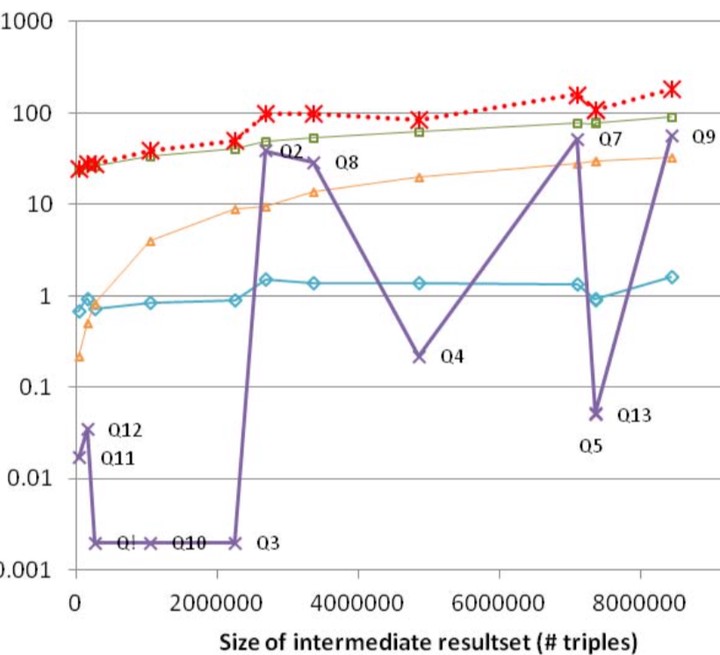Partitioning OWL knowledge bases for parallel reasoning

Abstract
The ability to reason over large scale data and return responsive query results is widely seen as a critical step to achieving the Semantic Web vision. We describe an approach for partitioning OWL Lite datasets and then propose a strategy for parallel reasoning about concept instances and role instances on each partition. The partitions are designed such that each can be reasoned on independently to find answers to each query sub goal, and when the results are unioned together, a complete set of results are found for that sub goal. Our partitioning approach has a polynomial worst case time complexity in the size of the knowledge base. In our current implementation, we partition semantic web datasets and execute reasoning tasks on partitioned data in parallel on independent machines. We implement a master-slave architecture that distributes a given query to the slave processes on different machines. All slaves run in parallel, each performing sound and complete reasoning to execute each sub goal of its query on its own set of partitions. As a final step, master joins the results computed by the slaves. We study the impact of our parallel reasoning approach on query performance and show some promising results on LUBM data.